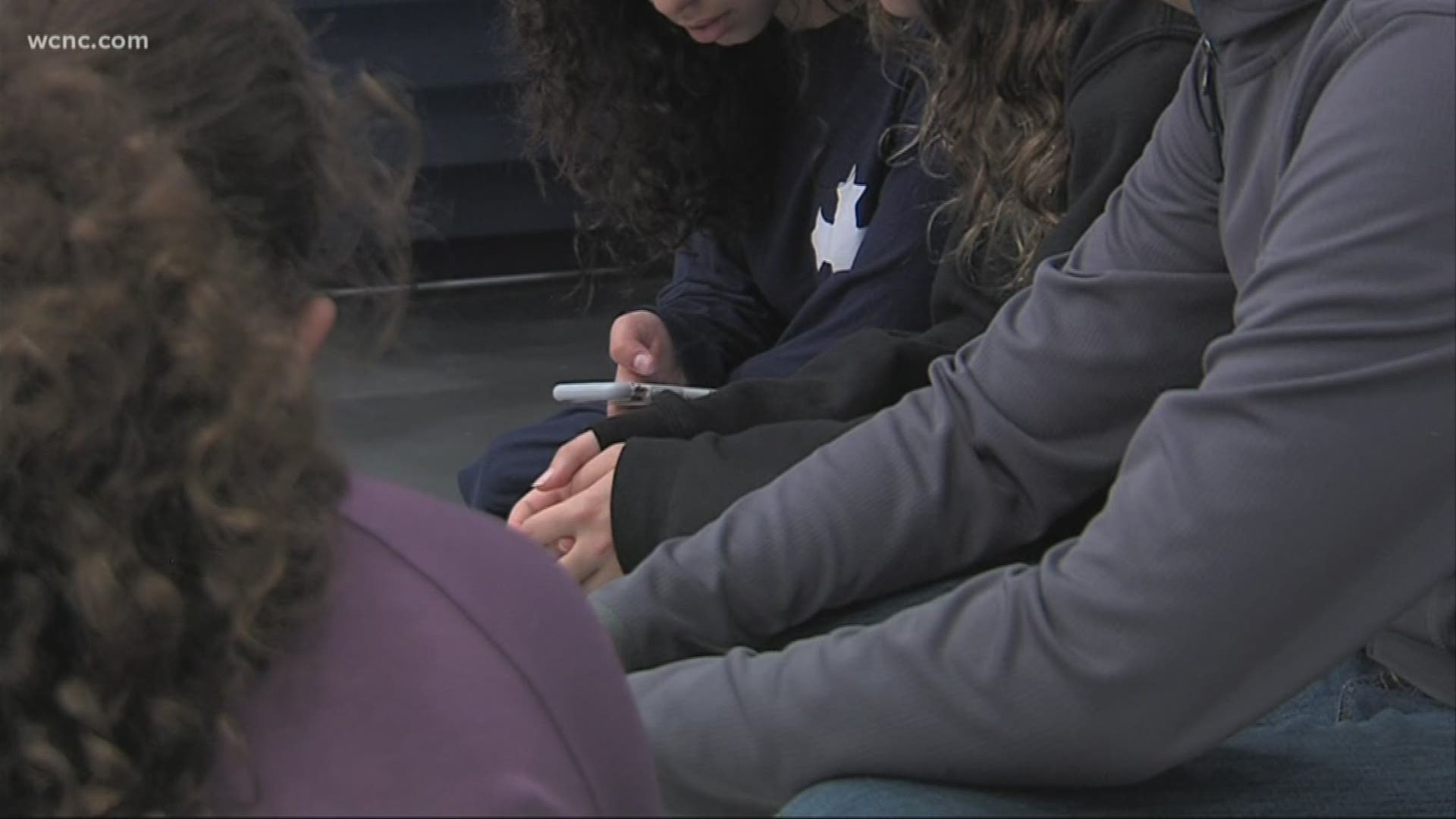CHARLOTTE, N.C. — With more children having access to devices like cell phones, internet challenges like "the choking game" have grown in popularity.
One doctor says certain kids are more likely to get involved in this risky behavior.
"Teens and pre-teens who have some suicidal thoughts or thoughts of self-harm, in previous studies, have shown to be associated with individuals who have tried these games – supposed games- such as this choking game or other high-risk behaviors," Doctor Vanessa Jensen of Cleveland Clinic Children's said.
Doctor Jensen says research shows phenomena such as "the choking game" are more likely to be tried by children who have symptoms of depression, behavioral disorders, or aggressive behaviors.
One recent study looks at the prevalence of the "choking game" challenge -- a dangerous and potentially fatal activity where children attempt to limit blood flow and oxygen to the brain to produce a "high."
Researchers looked at children between the ages of 9 and 16 and found close to 10% of the nearly 2,000 children studied had tried this game.
Doctor Jensen said adolescents and teens participating in risk-taking behavior is nothing new, but what raises a red flag is that these internet games seem to attract kids who are emotionally distressed.
The concern is that these games may be a way for some teens to play with the idea of suicide.
Doctor Jensen said kids trying risky things -- like taking too much ibuprofen on purpose -- can be a call for attention that should never be ignored.
She added that all it takes is one time for the risk-taking to go too far. She said the most important thing parents can do is communicate with their kids.
"Talk about it, ask about it," Doctor Jensen said. "Whenever something's on the news, or in media, that a parent sees about teens, bring it up over dinner time -- dinner conversation, breakfast conversation – 'You know, I heard about this; what do you and your friends think about this?'"
The doctor said parents should keep in mind that many kids won't immediately admit to partaking in risky-behavior, but parents can often tell whether their child is being honest.
Experts say if you suspect they're not telling you the truth, don't let up. Just keep asking them until you get the truth.

